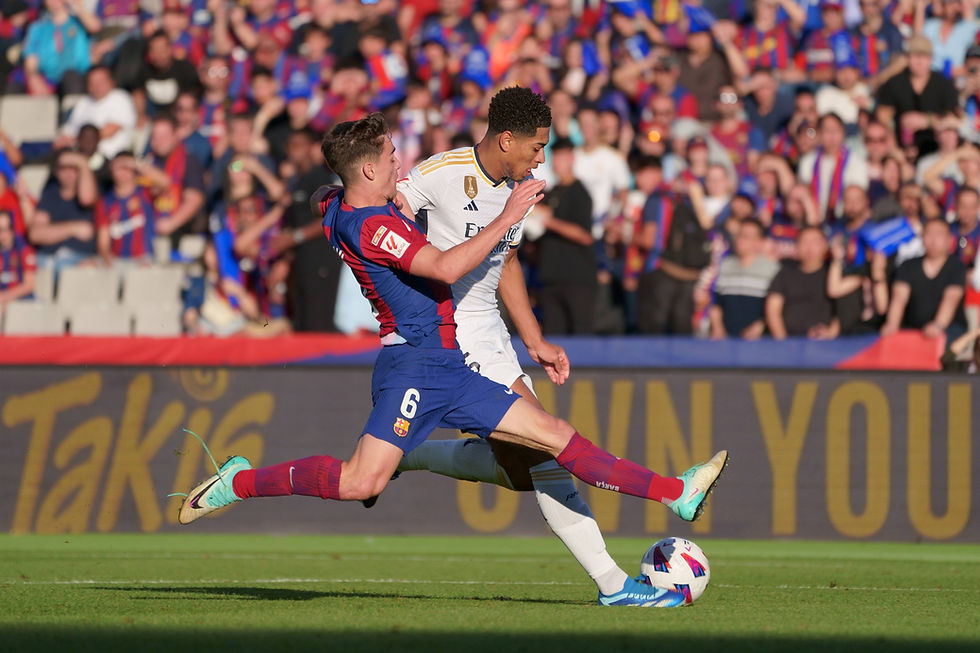Barcelona’s Messi Financial Situation
- Ben Shrader
- Aug 2, 2021
- 3 min read
Updated: Oct 18, 2022
Barcelona is the world’s most valuable soccer team. The world’s best player, Lionel Messi, recently agreed to a new contract that will keep him in Barca colors for another five years.
Barcelona is also over 1 billion Euros in debt. And unless they can clear enough money to get under La Liga’s salary cap by August 31st, the club will not be allowed to register Messi’s new contract, which would render him ineligible to play in the league until January.
La Liga’s salary cap is not fixed like in American sports leagues. Spanish teams are allowed to spend on players and staff based on several factors, including their income and expenses, and crucially for Barca, debt repayment. Barcelona’s limit for this season has been reported at between €160-200 Million (about $189-236 Million), down from €347 Million ($409 Million) last year. Even with the huge drop, Barca’s cap is still higher than every La Liga club other than Real Madrid.
The problem lies in part in the fact that Barcelona’s cap figure is less than 30% of what it was two seasons ago. Add to that some questionable financial management and the fact that they haven’t stopped acquiring high-priced superstars. The upshot is that the club needs to move more than €200 Million worth of salary off their books before they can register the contracts of Messi and new signings Sergio Aguero, Memphis Depay, Eric Garcia, and Emerson Royal. Even if Barca is able to move some current players, as long as the club is over the cap, it can only allocate 25% of transfer profits for new costs, allocating the other 75% to paying outstanding debts.
Other clubs know that Barcelona must move salaries, which hurts the club’s leverage in potential deals. And transfer values have generally gone down worldwide due to the pandemic’s effect on revenue, meaning the powers that be at the Camp Nou have their work cut out for them.
Barca’s situation is raising a host of current and potential legal issues. For one, players they would like to—and need to—move are under contract, for extensive annual wages. This is money the club legally owes the players. Those deals would have to be re-negotiated or moved for cents on the Euro. Worse, Barca unilaterally terminated the contract of Brazilian midfielder Matheus Fernandes—via an e-mail to the player. Fernandez has said he intends to file suit over the dismissal.
From a sponsorship perspective, a league with Messi on the bench is less marketable than one with him making his trademark 60-yard runs or curling in magical free kicks. La Liga’s global partners include Budweiser, Puma, EA Sports, and Panini; Barcelona’s partners include Nike, Rakuten, and Gatorade. It’s not a stretch to think they’d be less than pleased at the prospect of a half season without the league’s most marketable star and might even want to pursue “make goods” due to Messi’s absence. These factors (and common sense) lead to the prevailing thought that La Liga will figure out a way to make sure Barcelona fixes its issues, or even alter the system to allow the club to register Messi’s contract. For what it’s worth, league president Javier Tebas has maintained that the league will not change the rules for Barca’s benefit. Whatever Barcelona does to address its financial situation, it needs to be done soon—Barca kicks off the La Liga season on August 15th.
Ben Shrader is a partner at Hart McLaughlin & Eldridge in Chicago, where he serves as Chair of the Chicago Bar Association Sports Law Committee. You can reach Ben at bshrader@hmelegal.com








